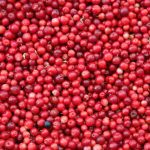How diet and exercise can prevent type 2 diabetes in everyone, even those at...
A groundbreaking study from the University of Eastern Finland has shown that a healthy diet and regular exercise can prevent type 2 diabetes, even...
What causes inflammatory bowel disease?
Inflammatory Bowel Disease (IBD) is a term that covers two main conditions: Crohn's disease and ulcerative colitis.
Both conditions involve chronic inflammation of the digestive...
Cranberry juice could help prevent UTIs, shows study
Drinking cranberry juice can significantly reduce the risk of urinary tract infections (UTIs), according to a recent study led by researchers at Bond University.
The...
Managing knee pain from osteoarthritis with diet
Osteoarthritis (OA) is a common type of arthritis that affects millions of people around the world, particularly those over the age of 50.
It happens...
Scientists discover new psychedelic mushrooms in Southern Africa
Researchers and citizen scientists have discovered two new species of psychoactive mushrooms in southern Africa.
This discovery brings the total number of known Psilocybe species...
Five tips to help you get outdoors to work out
It's never a bad time to start an exercise routine or get back to one.
And with warmer weather and more daylight on the horizon,...
Physical inactivity in US is another big crisis in the pandemic, study finds
A new study published in The American Journal of Medicine has revealed a concerning link between social vulnerability and unhealthy lifestyles in the United...
The simple path to a healthier life: just keep walking
Are you among those who dread going to the gym or running marathons?
Well, here's some fantastic news: you don't have to be an athlete...
Scams targeting health and financial well-being in older people
A recent poll conducted among older adults in the United States reveals alarming statistics about the prevalence of scams targeting this demographic.
The survey, conducted...
Vitamin D and strong bones: what you need to know
Osteoporosis is a condition where bones become weak and brittle. Think of it like a sponge: a healthy sponge is springy and full, but...










